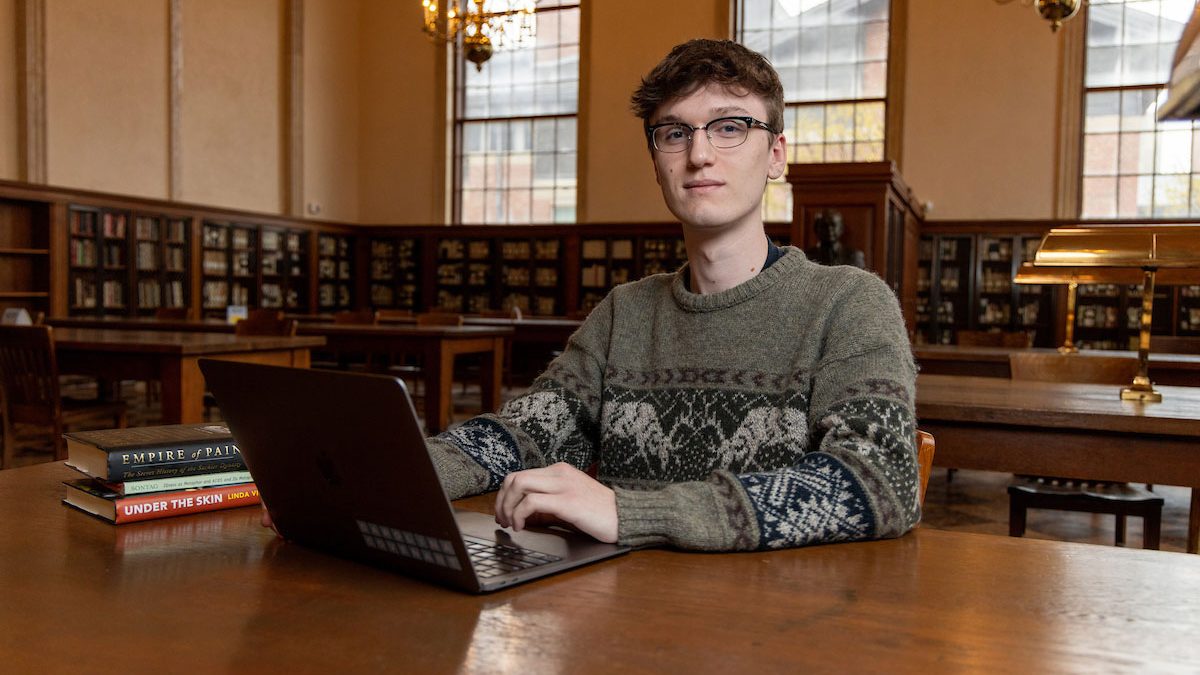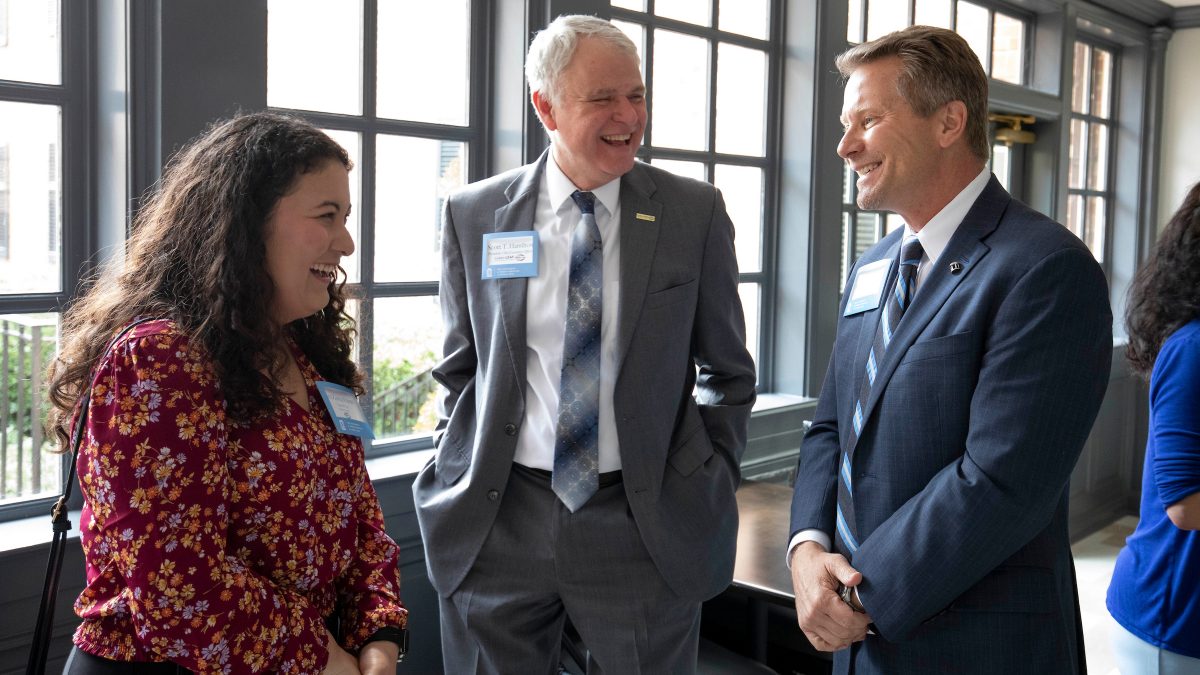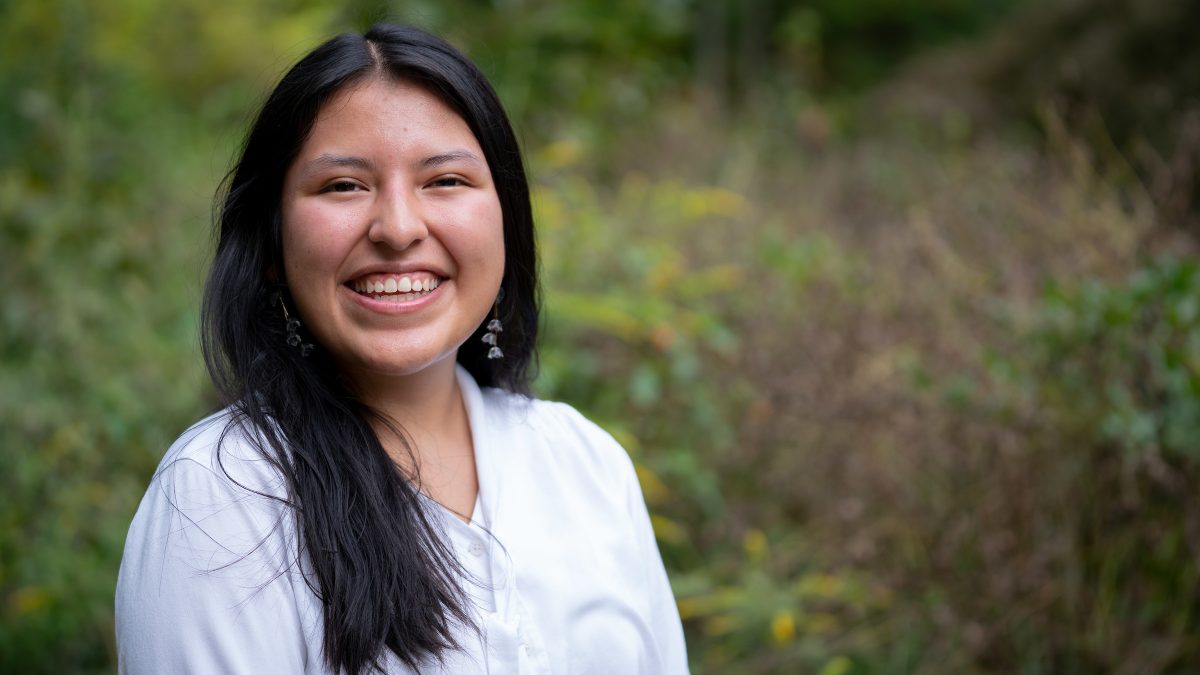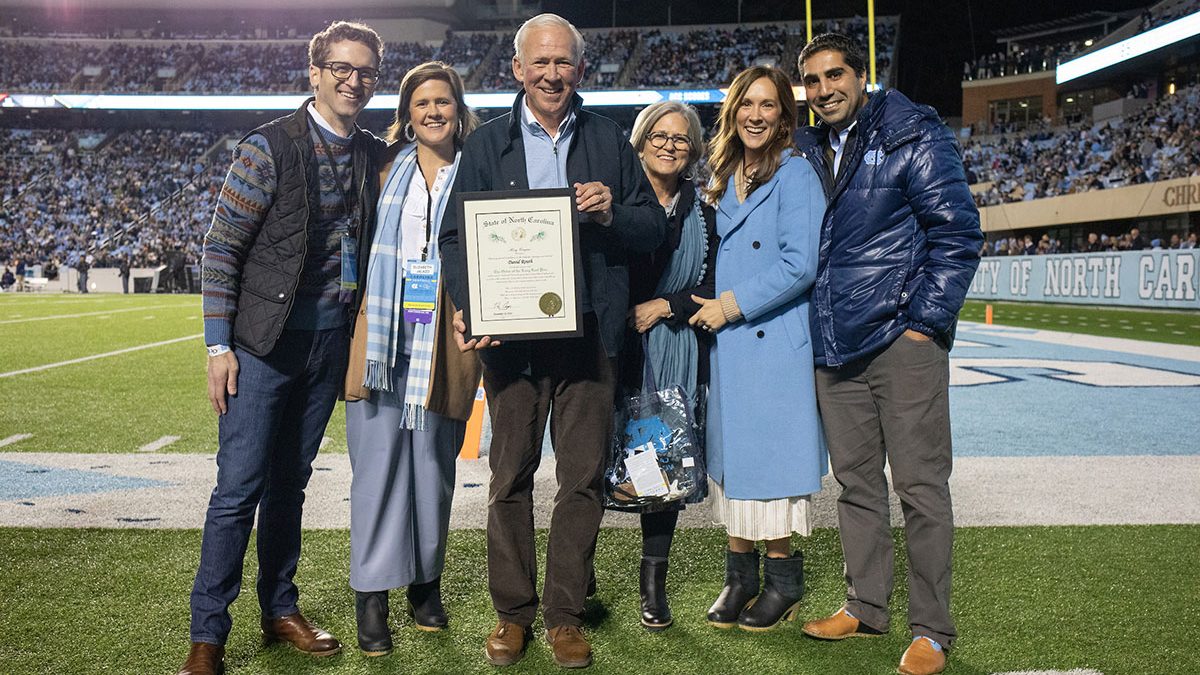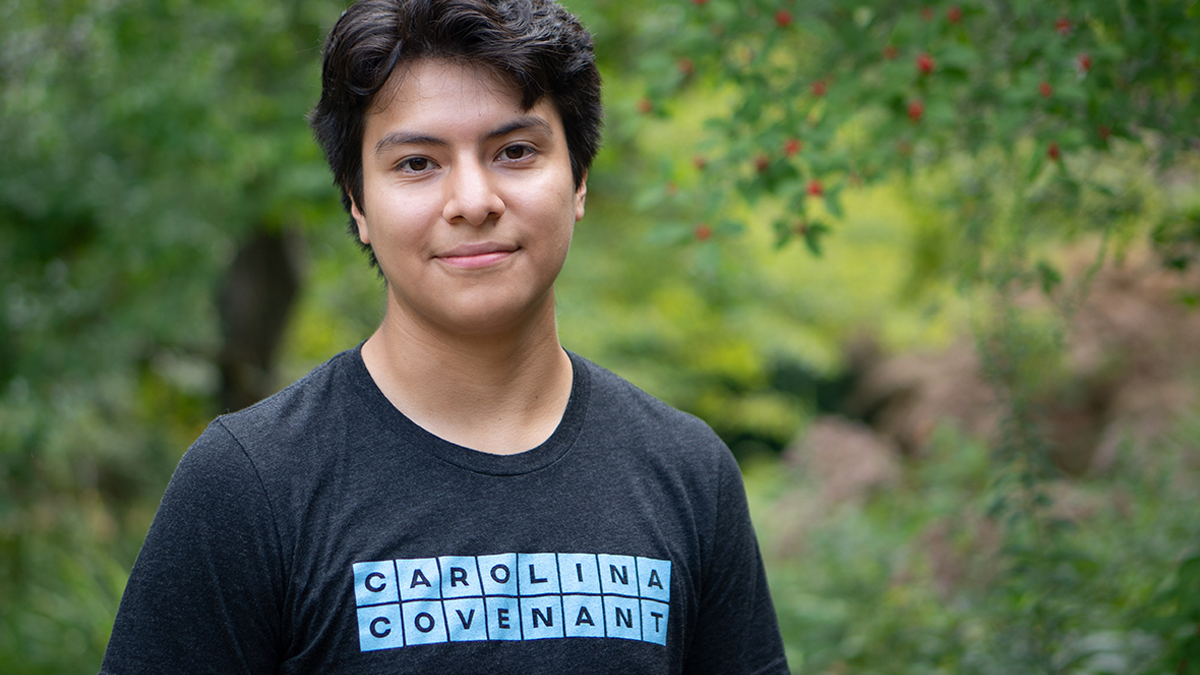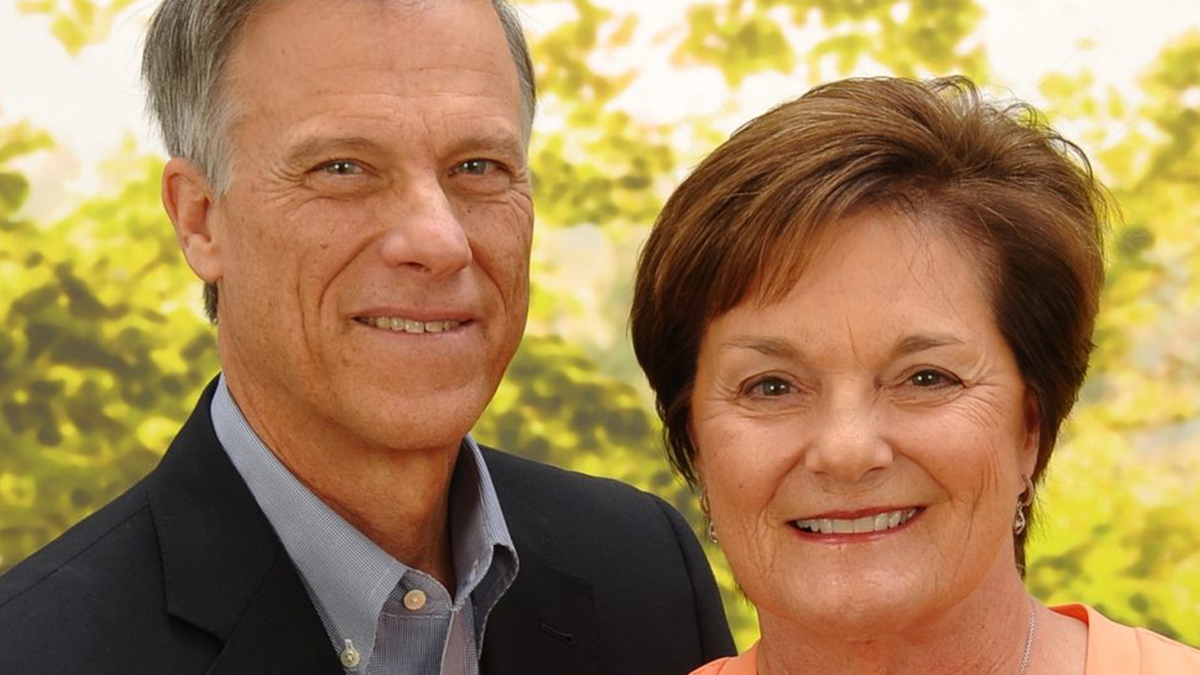Leading the Next Generation of Computer Scientists
Published on September 10, 2021Chancellor's Science Scholar Nihar Vaidya ’23 explores the intersection of computer science and neuroscience.
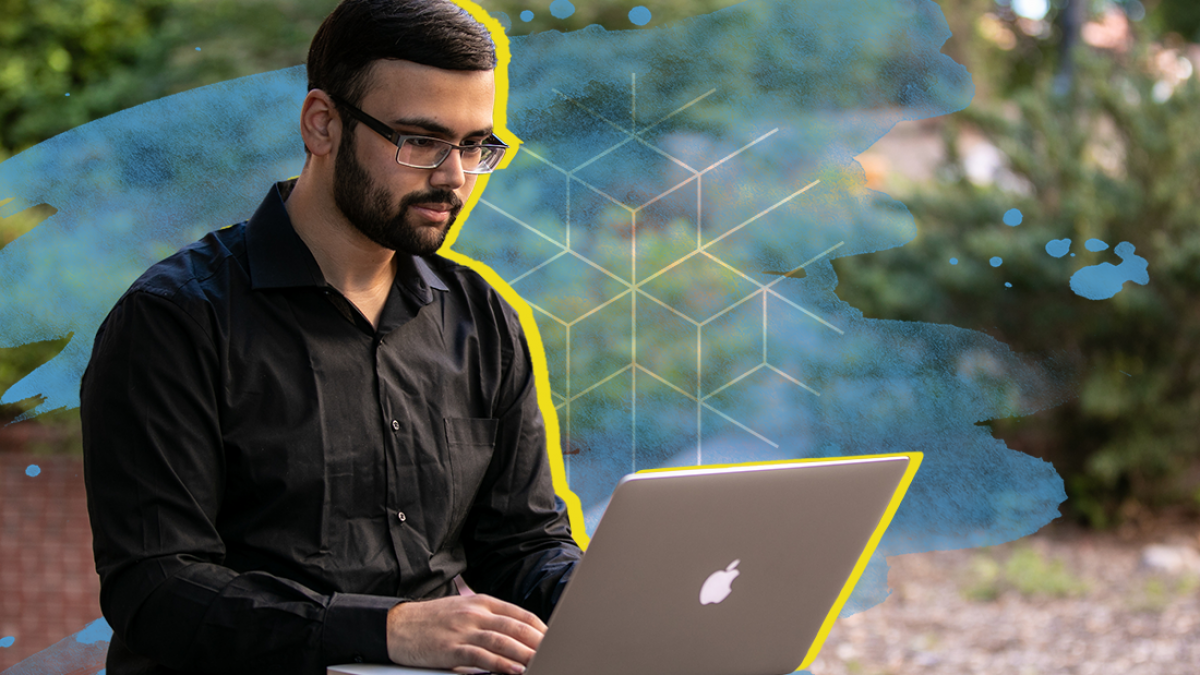
Chancellor's Science Scholar Nihar Vaidya ’23 explores the intersection of computer science and neuroscience.
As a kid, Nihar Vaidya ’23 dreamed of becoming a pilot when he grew up. Stories and memorabilia from a neighbor who was an Air Force veteran piqued Vaidya’s interest in flight, sparking his natural curiosity and penchant for tinkering.
Vaidya and a childhood friend constructed a model helicopter using balsa wood, rubber bands and straws, and, after a week of work and supply runs to the hardware store, got their craft to fly for more than 30 seconds. They also built a tiny parachute and cradled an egg at the bottom. A teacher granted permission to drop the contraption from the roof of a four-story school building, and it floated gently to the ground – egg unharmed.
“I was fascinated with how things work and what I could do to make them even better,” Vaidya said. “I would compete in science fairs and just keep refining and ultimately try to perfect everything.”
By the time Vaidya, who is from Cary, North Carolina, was applying to colleges, he had developed an interest in computer science and was strongly considering aeronautical engineering programs. UNC-Chapel Hill was on his list along with several other prestigious schools, but it was a campus visit to interview for the Chancellor’s Science Scholars program that vaulted Carolina to the top.
Now in its ninth year, the Chancellor’s Science Scholars program offers merit-based scholarships, opportunities to participate in cutting-edge research, professional development, leadership training and mentorship designed to pave the way for academic success and future achievement in STEM fields.
Soon after his interviews, Vaidya was between classes at his high school when the email arrived that he had been selected as a Chancellor’s Science Scholar. He began jumping and shouting as his friends hugged him in celebration, and it was at that point he knew: He was heading to Chapel Hill for college.
“I felt like CSS was a program that truly cared about my personal development,” Vaidya said. “It was such a familial environment, and that shone through everything that they did. It made a huge impact, and I can say that it is 100% the reason I came to Carolina.”
For Vaidya, the program immediately lived up to its promise of offering a nurturing home. During a six-week summer immersion program to help introduce incoming scholars to STEM life at Carolina, Vaidya felt camaraderie with his fellow scholarship recipients and the support of a community that would help him thrive.
“It goes way beyond that summer,” Vaidya said. “We have individual monthly meetings with program directors where we can talk about anything, all the CSS students have a big group chat, and all the students in my cohort lived in the same dorm. I feel like someone has my back through this journey.”
Vaidya, who is a computer science major with a minor in neuroscience, has earned a place on the Dean’s List every semester and was named a CSS Distinguished Scholar. Vaidya also founded a Carolina chapter of the Association for Computing Machinery, a global organization dedicated to supporting students and professionals in computer sciences and computing fields. He contributed to the work of researchers who are bridging the fields of computer science and neuroscience within Carolina’s Department of Computer Science.
Working with Assistant Professor Brent Munsell, Vaidya is helping with research that focuses on constructing machine-learning models to predict if a patient has epilepsy, by using gray matter patterns in the human brain expressed in MRI data sets. The project uses Python and Matlab deep-learning software libraries that apply convolution neural networks to volumetric imaging data. Additionally, the project will build software tools that allow researchers to visually interpret the regions in the brain that contribute most to prediction accuracy.
Many computer science graduates are lured by good salaries at leading companies around the world, but Vaidya’s plan is to pursue a Ph.D. and continue research at the intersection of computing and brain mapping to better understand neurological disorders. He also hopes that he can help teach and train future computer scientists, especially students of color, a calling that was inspired, in part, by his experiences as a Chancellor’s Science Scholar.
“I hope I can take everything I have gained through CSS and make a positive difference in a lot of people’s lives,” Vaidya said. “And hopefully I can help the next generation of computer scientists become as good as they can be.”
